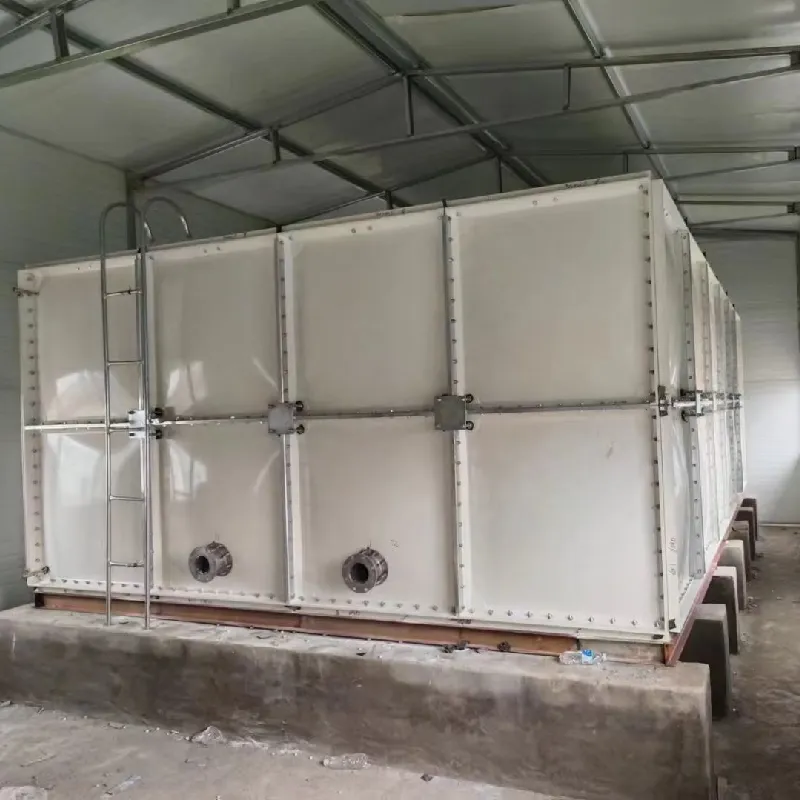loading...
- No. 9, Xingyuan South Street, Dongwaihuan Road, Zaoqiang County, Hengshui, Hebei, China
- admin@zjcomposites.com
- +86 15097380338
- Welcome to visit our website!
frp water softener tank
Understanding FRP Water Softener Tanks
In today’s world, water quality has become a key concern for households and industries alike. One of the effective solutions to reduce water hardness is the use of a water softener. Among various materials used, Fiber Reinforced Plastic (FRP) has emerged as a popular choice for water softener tanks due to its unique properties and benefits.
Firstly, let's discuss what FRP is. Fiber Reinforced Plastic is a composite material made of a polymer matrix reinforced with fibers, usually glass. This combination provides the material with a high strength-to-weight ratio, making it both lightweight and incredibly durable. For water softener tanks, this translates into corrosion resistance and longevity, as FRP tanks are less susceptible to rust and chemical damage compared to traditional steel tanks.
Understanding FRP Water Softener Tanks
FRP tanks are not only robust but also versatile. They can be manufactured in various sizes and shapes, catering to both residential and commercial needs. This flexibility allows users to choose a water softener that best fits their spatial and water usage requirements, avoiding the bulkiness often associated with metal tanks.
frp water softener tank

Another significant advantage of using FRP water softener tanks is their thermal insulation properties. They help maintain the temperature of the water inside the tank, which can be particularly beneficial in colder climates, ensuring efficient operation of the softening process.
Moreover, maintenance of FRP tanks is straightforward. Unlike metal tanks that may require regular painting or coating to prevent rust, FRP tanks are generally maintenance-free. This not only saves time and effort but also reduces long-term operational costs.
In terms of environmental impact, FRP tanks are made from materials that can be recycled, contributing to more sustainable practices in water treatment. This eco-friendliness is increasingly becoming an essential factor for consumers who are conscious of their environmental footprint.
Lastly, as water quality standards become stricter, the demand for effective water softening solutions will likely increase. FRP water softener tanks are positioned to meet this demand, providing a durable, efficient, and environmentally-friendly option for both residential and commercial users.
In conclusion, FRP water softener tanks offer numerous advantages over traditional alternatives. Their combination of durability, lightweight design, ease of maintenance, and insulation properties make them an ideal choice for undertaking the essential task of water softening. As we continue to prioritize water quality, investing in an FRP water softener tank may very well be a step in the right direction.
-
GRP Structures: The Future of Lightweight, High-Performance EngineeringNewsJun.20,2025
-
FRP Water Tank: High-Performance Storage for Corrosive and Clean Water SystemsNewsJun.20,2025
-
FRP Square Tube: The New Industry Standard for Chemical and Structural ApplicationsNewsJun.20,2025
-
FRP Pultruded Profiles: The Ultimate Choice for Lightweight Structural StrengthNewsJun.20,2025
-
FRP Handrails: The Safer, Smarter, and Stronger Choice for Modern InfrastructureNewsJun.20,2025
-
FRP Grating: The Smart Solution for Durable, Lightweight Industrial FlooringNewsJun.20,2025
-
Why Choose a Galvanized Water Tank for Your Storage NeedsNewsMay.21,2025
